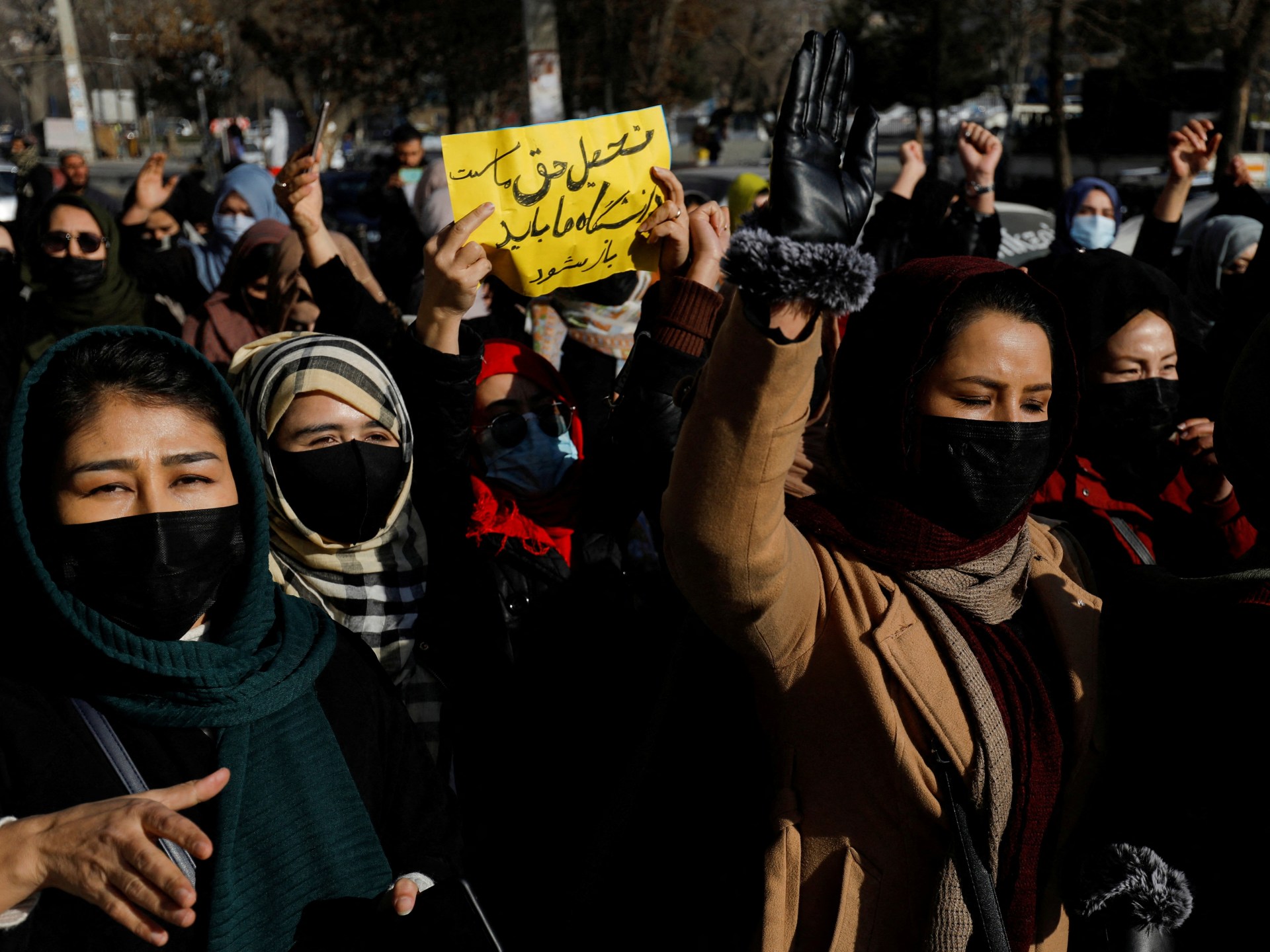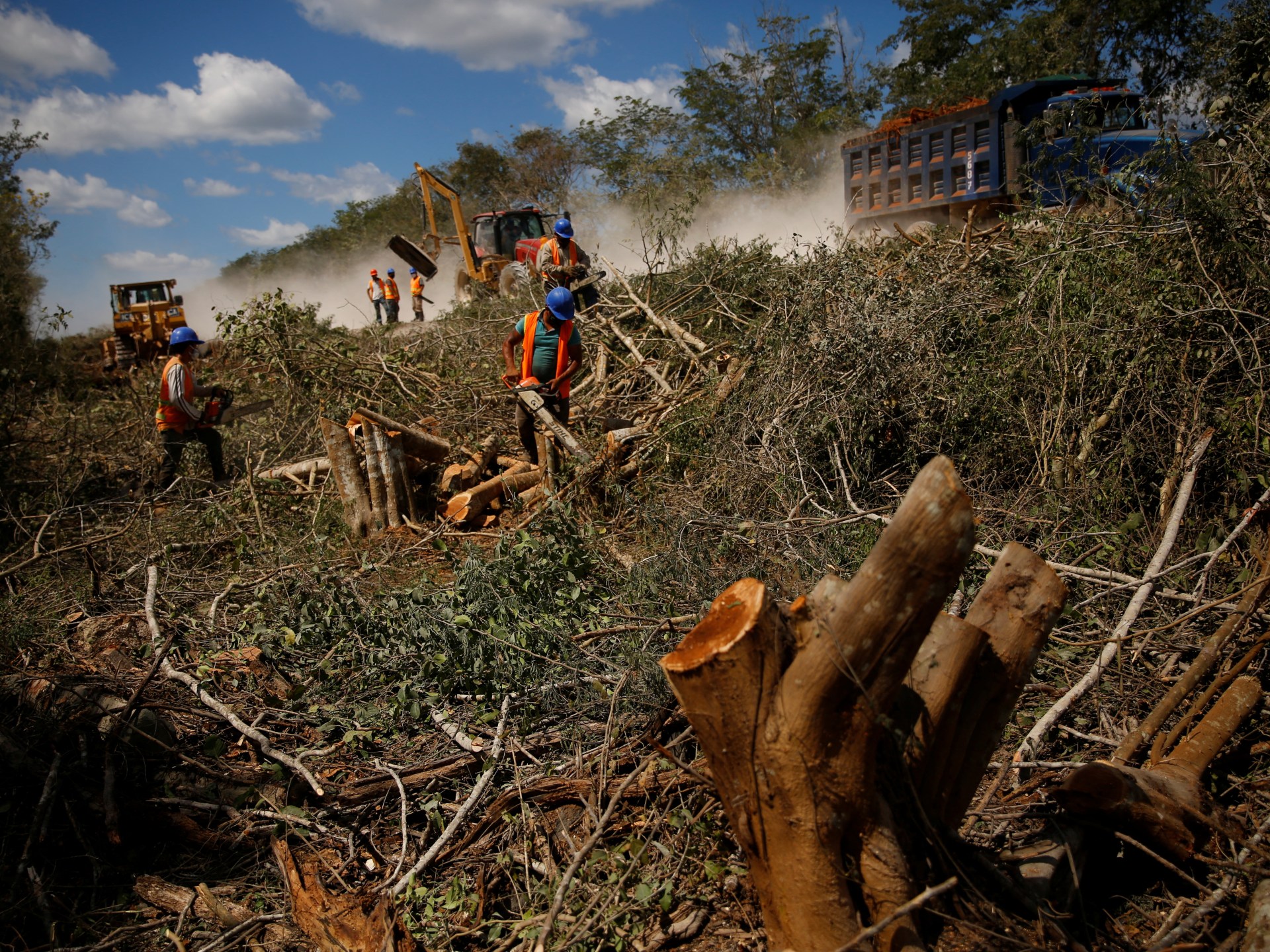Taliban bans women from working for domestic, foreign NGOs | Taliban News
Afghanistan’s Taliban-run administration has ordered all local and foreign non-governmental organisations (NGO) to stop female employees from coming to work, according to an economy ministry letter, in the latest crackdown on women’s freedoms.
The letter, confirmed by economy ministry spokesperson Abdulrahman Habib on Saturday, said the female employees were not allowed to work until further notice because some had not adhered to the administration’s interpretation of Islamic dress code for women.
The letter said any NGO found not complying with the order would have their operating licence revoked in Afghanistan.
The order came days after the Taliban-run administration ordered universities to close to women, prompting strong global condemnation and sparking some protests and heavy criticism inside Afghanistan.
It was not immediately clear how the order would affect United Nations agencies, which have a large presence in Afghanistan delivering services amid the country’s humanitarian crisis.
When asked whether the rules included UN agencies, Habib said the letter applied to organisations under Afghanistan’s coordinating body for humanitarian organisations, known as ACBAR. That body does not include the United Nations, but includes more than 180 local and international NGOs.
However, the United Nations often contracts with NGOs registered in Afghanistan to carry out its humanitarian work.
Aid workers say female workers are critical to ensuring women can access aid.
‘Education is our right’
Taliban security forces used a water cannon to disperse women protesting the ban on university education for women on Saturday, witnesses said.
Since the announcement on Tuesday, Afghan women have since demonstrated in major cities against the ban, a rare sign of domestic protest since the Taliban seized power last year.
According to witnesses in the western city of Herat, about two dozen women on Saturday were heading to the provincial governor’s house to protest the ban, chanting, “Education is our right,” when they were pushed back by security forces firing the water cannon.
One of the protest organisers, Maryam, said between 100 and 150 women took part in the protest, moving in small groups from different parts of the city towards a central meeting point. She did not give her last name for fear of reprisals.
“There was security on every street, every square, armoured vehicles and armed men,” she said. “When we started our protest, in Tariqi Park, the Taliban took branches from the trees and beat us. But we continued our protest. They increased their security presence. Around 11am [06:30 GMT], they brought out the water cannon.”
A spokesman for the provincial governor, Hamidullah Mutawakil, claimed there were only four or five protesters. “They had no agenda, they just came here to make a film,” he said.
There has been widespread international condemnation of the university ban, including from Muslim-majority countries such as Saudi Arabia, Turkey, the United Arab Emirates and Qatar, as well as warnings from the United States and the G7 group of major industrial nations that the policy will have consequences for the Taliban.
An official in the Taliban government, Minister of Higher Education Nida Mohammad Nadim, spoke about the ban for the first time on Thursday in an interview with the Afghan state television. He said the ban was necessary to prevent the mixing of genders in universities and because he believes some subjects being taught violated the principles of Islam.
He said the ban would be in place until further notice.
Despite initially promising a more moderate rule respecting rights for women and minorities, the Taliban has widely implemented its interpretation of Islamic law since it seized power in August 2021.
It has also restricted women from most fields of employment, ordered them to wear head-to-toe clothing in public, and banned them from parks and gyms.
Also Saturday, in the southwestern Pakistani city of Quetta, dozens of Afghan refugee students protested against the ban on female higher education in their homeland and demanded the immediate reopening of campuses for women.




